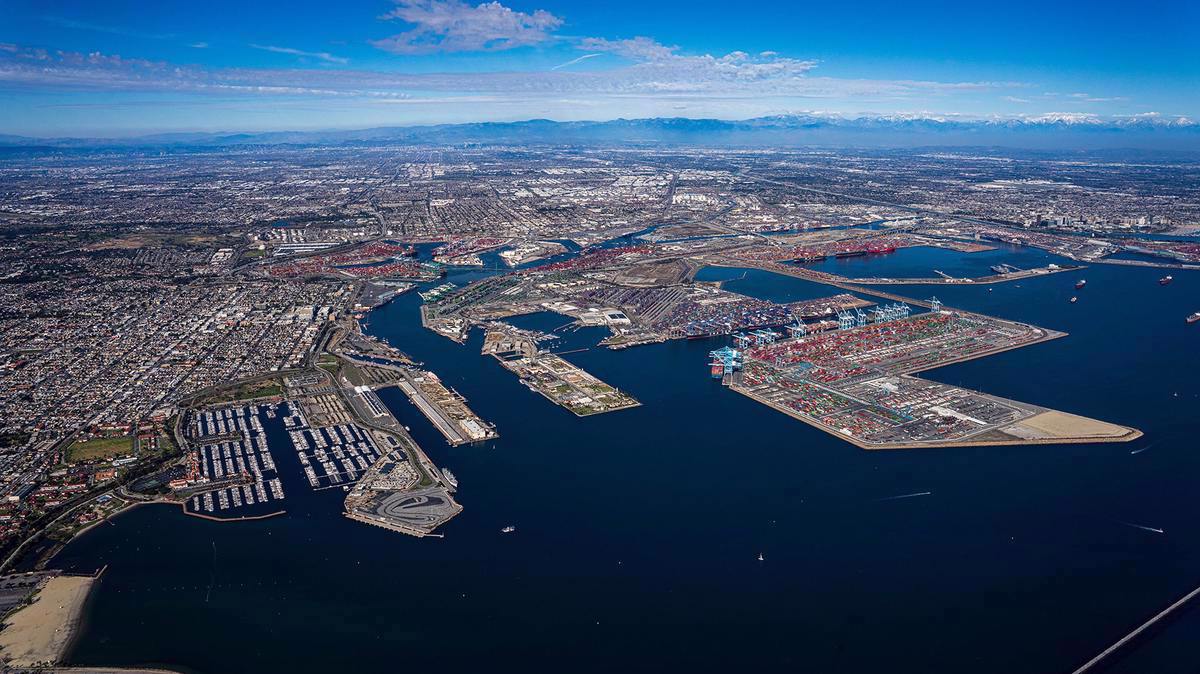Cargo diversions from US West Coast ports can increase GHG emissions - study
A study conducted by Starcrest Consulting reveals that cargo routed from Asia to the US West Coast ports actually provides greater greenhouse gas (GHG) savings compared to those routed through other ports on the East Coast or Gulf Coast.
 PHOTO: Aerial view of Port of Los Angeles. Getty Images
PHOTO: Aerial view of Port of Los Angeles. Getty Images
According to the study, cargo movement from Asia through the US West Coast ports, specifically Long Beach and Los Angeles ports, offers the shortest route between the regions. They are geographically closer to Asia compared to ports on the East Coast or Gulf Coast.
The proximity of the West Coast ports to Asia allows for shorter transit times, which means less fuel consumption and lower emissions during the voyage. This historical routing of cargo from East Asian ports through the West Coast has been advantageous in terms of reducing GHG emissions.
However, state and local regulations designed to curb GHG emissions from the maritime and logistics sectors in California have played a role in shifting cargo flow away from the West Coast and towards ports in the East and Gulf Coast, the study noted.
These regulations have led to an increase in operational costs for shipping companies. As a result, there can be unintended consequences, such as the shifting of cargo flows to less expensive gateways with longer transit times. This shift can ultimately lead to greater GHG emissions.
"Cargo bypassing the West Coast to be transported through less expensive and less regulatory cumbersome gateways see much longer transit times, along with associated greater GHG emissions," Starcrest stated.
Diversion of cargoes from the Pacific Northwest to the East or Gulf Coast increases GHG emissions by as much as 26% on average, the study found. Overall, Asian cargoes bypassing West Coast ports have 18% higher GHG emissions.
"This study demonstrates the environmental risk associated with cargo diversion. Public officials must take a holistic approach when it comes to climate change policies.", Vice President of the Pacific Merchant Shipping Association (PMSA) Thomas Jelenić, commented.
The study emphasises that policymakers must consider the environmental impact of cargo diversion policies and use GHG route measuring tools to make informed decisions.
The California Air Resources Board (CARB) has announced new regulations requiring all new heavy-duty truck sales to be zero-emission by 2045.
By Debarati Bhattacharjee
Please get in touch with comments or additional info to news@engine.online





